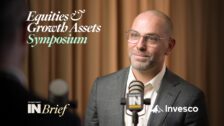Financial advisers in need of better data
Not that long ago a fund manager could provide a mesmerising presentation slide on how it uses “big data.” Examples might be using Google Earth to discern real-time movement in shopping centres, building activity based on shadowing over the day and seasons as structures grew in size, right down to the mundane of what was trending in any number of web sites.
Are there now compelling examples of what has been learnt? It takes much imagination to connect any security holding or discussion on a portfolio to such data. Unquestionably there is more current information than available from statistics bureaus, yet that may not change the portfolio decisions. Up to date trends could just be ‘noise’ rather than confirming a directional change, nor is there clear-cut evidence that forecasts are more accurate.
At one end we have algorithmic fund managers where the sole effort is to finesse systems to recognise small changes in patterns, hence their trading frequency. On the other side we have standard fundamental research that works its way into how industries and services are transformed over longer periods, helped by decent-to-visionary corporate management.
Today we are constantly encouraged to provide feedback when we consume goods and services, as though that may be a predictive tool of consumption patterns and processes.
One problem is that we often don’t know what we, as consumers, want until a provider shows us a solution that makes sense. Surveying consumers on the future is unlikely to get anywhere fast nor do they rarely get to the guts of the matter. Questions are often posed to generate an outcome, and promoter efforts are too obvious.
A fund manager that can make a credible, evidence-based case of marrying data with insight and fundamentals could be a different process to the standard approach. As yet, the promise of big data has not delivered.
On a parallel level, the statistics presented in fund manager investment reports has hardly changed over the decades. Performance returns on static, suitable time frames, a cursory take on some risk ratio and maybe something about number of stocks held or a simple financial metric, PE, yield or ROI. Does any manager show how these have changed over time or why they are important?
Attribution to long-term performance is rare, naturally so if there is a small, possibly single-stock outlier. Weak performers may get a token mention as a monthly drag, but nothing on sizing, longer time frame or other justification. Why not make it easier for the reader of a performance report to get a succinct comment on what the data means in the context of the fund’s intentions?
Data is an everyday commodity and yet unused. Subjectivity and point-in-time judgements are therefore embedded. Fund managers should therefore not complain about being misunderstood, nor should advisers claim that they were misinformed when the relevant questions were not asked.











